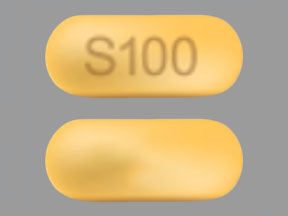
Seysara Coupons & Savings Card – Discount Prices from $261.87
My prescription
Edit
100MG, Seysara (30 Tablets)
Select pharmacy

CVS
$307.57
COUPON PRICE
Albertsons
$261.87
COUPON PRICE
Walmart
$261.87
COUPON PRICE
Walgreens
$310.33
COUPON PRICESeysara savings card
Show this card to your pharmacist
Albertsons
$261.87
BIN
ID
PCN
GRP
015995
LHKPX739640
GDC
DR33
Powered by
Related tetracycline antibiotics prescriptions
More prescriptions for acne
Related tetracycline antibiotics prescriptions
More prescriptions for acne
Price history for Seysara
30 Tablets, 100MG
Average retail price for Seysara
Average SaveHealth price for Seysara
Our price history data is based on aggregated prescription data collected from participating pharmacies in America. Our prescription data updates daily to reflect the latest price changes. If you notice a missing data point, it means there wasn't sufficient data available to generate a monetary value for that date.
*Retail prices are based on pharmacy claims data, and may not be accurate when we don't have enough claims.
Seysara dosage forms
Dosage Quantity Price from Per unit 60MG 30 Tablets $1141.76 $38.06 100MG 30 Tablets $1141.76 $38.06 150MG 30 Tablets $1141.76 $38.06
| Dosage | Quantity | Price from | Per unit |
|---|---|---|---|
| 60MG | 30 Tablets | $1141.76 | $38.06 |
| 100MG | 30 Tablets | $1141.76 | $38.06 |
| 150MG | 30 Tablets | $1141.76 | $38.06 |
What is the drug Seysara used for?
Seysara is used for the treatment of moderate to severe acne vulgaris in patients who are 9 years of age and older.
Is Seysara better than Accutane?
The effectiveness of Seysara (sarecycline) versus Accutane (isotretinoin) depends on the specific condition being treated and the individual patient's needs. Seysara is an antibiotic used primarily for moderate to severe acne, while Accutane is a retinoid used for severe nodular acne that hasn't responded to other treatments. Accutane is generally considered more potent and is often used for more severe cases, but it also has a higher risk of side effects. The choice between the two should be made by a healthcare provider based on the patient's specific condition, medical history, and treatment goals.
What kind of antibiotic is seysara?
Seysara is a tetracycline-class antibiotic. It is specifically used to treat moderate to severe acne vulgaris in patients who are 9 years of age and older.
What happens when you stop taking Seysara?
When a patient stops taking Seysara, any improvements in their acne may gradually diminish, and the acne could potentially return to its previous state. It is important for the patient to consult with their healthcare provider before discontinuing the medication to discuss alternative treatments or management strategies to maintain skin health. Additionally, stopping Seysara abruptly without medical advice may not be recommended, as the healthcare provider can offer guidance on the best approach to discontinuation.
What is the difference between doxycycline and Seysara?
Doxycycline and Seysara (sarecycline) are both antibiotics used to treat acne, but they have some differences. Doxycycline is a broad-spectrum tetracycline antibiotic that can treat a variety of bacterial infections, including acne. Seysara, on the other hand, is a more targeted tetracycline antibiotic specifically approved for the treatment of moderate to severe acne. Seysara is designed to have fewer effects on the gut microbiota and potentially fewer side effects compared to doxycycline.
